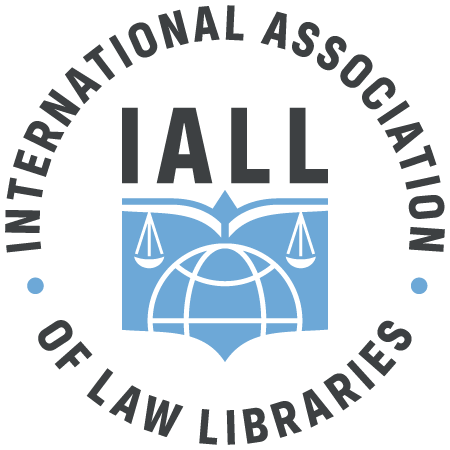Sunday, June 16
12:30 – 13:00
Coffee and registration. Professorboligen – University of Oslo (uio.no)
13:00 – 14:30
Pre-Conference workshop: Experiential Legal Learning – Centre on experiential legal learning and the Law Library Professorboligen – University of Oslo (uio.no)
Maura Constanze Lehmann, Student – Faculty of Law, University of Oslo.
Melissa Sabamali, Student – Faculty of Law, University of Oslo.
16:30
Registration. Domus Bibliotheca – University of Oslo (uio.no)
17:00
Opening reception. Domus Bibliotheca – University of Oslo (uio.no)
Professor Dag Michalsen Department of Public and International Law, Faculty of Law, University of Oslo.
Randi Halveg Iversby, Library Director, University of Oslo Library.
Monday, June 17
08:45 – 09:30
Coffee and registration. Domus Juridica – University of Oslo (uio.no)
09:30 – 09:45
Welcome to the 42nd IALL Annual Course
Professor Ragnhild Hennum, Dean – Faculty of Law, University of Oslo.
09:45 – 10:30
Keynote speech: Viking law
The Vikings plundered Europe for centuries. However, at home they favoured extensive legal regulation of their every day life. What can the reminiscences of Viking law tell us about their mentality and society?
Professor Jørn Øyrehagen Sunde, Department of Public and International Law, Faculty of Law, University of Oslo.
10:30 – 11:00
Coffee break & meet with sponsors.
11:00 – 11:45
The Norwegian citizenship – legal meaning and importance pursuant to the Norwegian Constitution and international law. How does international law influence Norwegian citizenship rights?
Doctoral Research Fellow Lucy Isabelle Klæboe Furuholmen, Department of Public and International Law, Faculty of Law, University of Oslo.
11:45 – 12:00
Presentation by Gold sponsor Wolters Kluwer Legal & Regulatory U.S.
12:00 – 13:00
Lunch
13:00 – 13:45
Sámi Rights in a poetic gaze
Associate professor Ánde Somby, Faculty of Law, University of Tromsø, The Arctic University of Norway.
14:00 – 16:00
Guided tours (more information on this will be sent out prior to the conference):
- University Aula – Munch
- National Library: Magnus Lagabøtes landslov and the Map Centre
- Supreme Court
16:15
Walk from hotels to Oslo City Hall.
17:00 – 18:30
Reception at Oslo City Hall.
Tuesday, June 18
08:45 – 09:15
Coffee and registration Domus Juridica – University of Oslo (uio.no)
09:15 – 10:00
Peaceful use and conflicts in the Arctic: the case of the Svalbard Treaty
Professor emeritus Geir Ulfstein Department of Public and International Law, Faculty of Law, University of Oslo
10:00 – 10:30
Coffee break & meet with sponsors.
10:30 – 11:45
Annual General Meeting (IALL members only).
11:45 – 12:45
Lunch
12:45 – 13:30
Enhancing Global North-Global South Academic Cooperation in the AI Era
Professor Gentian Zyberi Norwegian Center for Human Rights, University of Oslo
13:30 – 14:00
Coffee break & meet with sponsors.
14:00 – 14:45
Undermining international law through corporate governance? The Norwegian state as a shareholder
Professor Beate Kristine Sjåfjell Department of Private Law, Faculty of Law, University of Oslo
15:30 Walk from hotels to Rådhuskaia.
16:00 – 21:00
Harbour cruise with S/S Helena. Departure from Rådhuskaia.
Wednesday, June 19
08:45 – 09:15
Coffee and registration. Domus Juridica – University of Oslo (uio.no)
09:15 – 10:00
The challenges of regulating Autonomous Vessels: The case of collision avoidance
Doctoral Research Fellow Ayoub Tailoussane Scandinavian Institute of Maritime Law, Faculty of Law, University of Oslo
10:00 – 10:30
Coffee break & meet with sponsors.
10:30 – 11:30
Artificial Intelligence, legal research and legal education in Norway
Postdoctoral Fellow Runar Hillleren Lie Department of Public and International Law, University of Oslo
11:30 – 12:30
Lunch
12:30 – 13:15
GDPR and legal research
Linn Karine Sigtun and Isak Falch Alsos Legal advisors at Division for Staff and Interdepartmental Services, Unit for IT Security and Law, University of Oslo
13:15 – 13:45
Coffee break & meet with sponsors.
13:45 – 14:30
MusicLab as an Open Science innovation project between a research centre and the University library
Professor Alexander Refsum Jensenius Director of RITMO Centre for Interdisciplinary Studies in Rhythm, Time and Motion, University of Oslo
14:30 – 15:15
AI and copyright law: AI models trained on literary and artistic works
Professor Inger Berg Ørstavik Department of Private Law, Faculty of Law, University of Oslo
17:00 Walk from hotels to St. Olavs plass.
17:15
Busses to Annual dinner at Ekebergrestauranten. Departure from St. Olavs plass.
18:00 – 22:00
Annual dinner at Ekebergrestauranten.
22:15
Busses back to St. Olavs plass.
Thursday, June 20
Optional day at Norsk Folkemuseum
